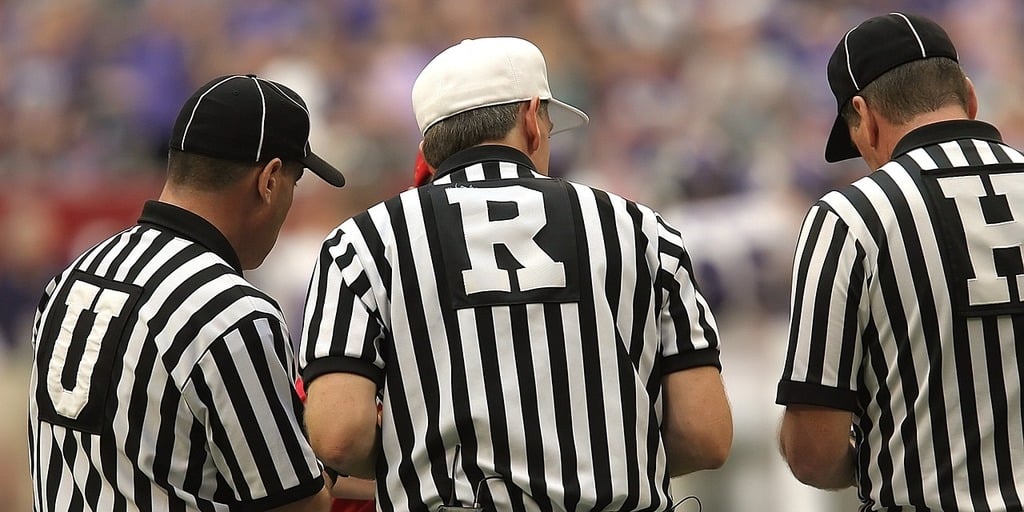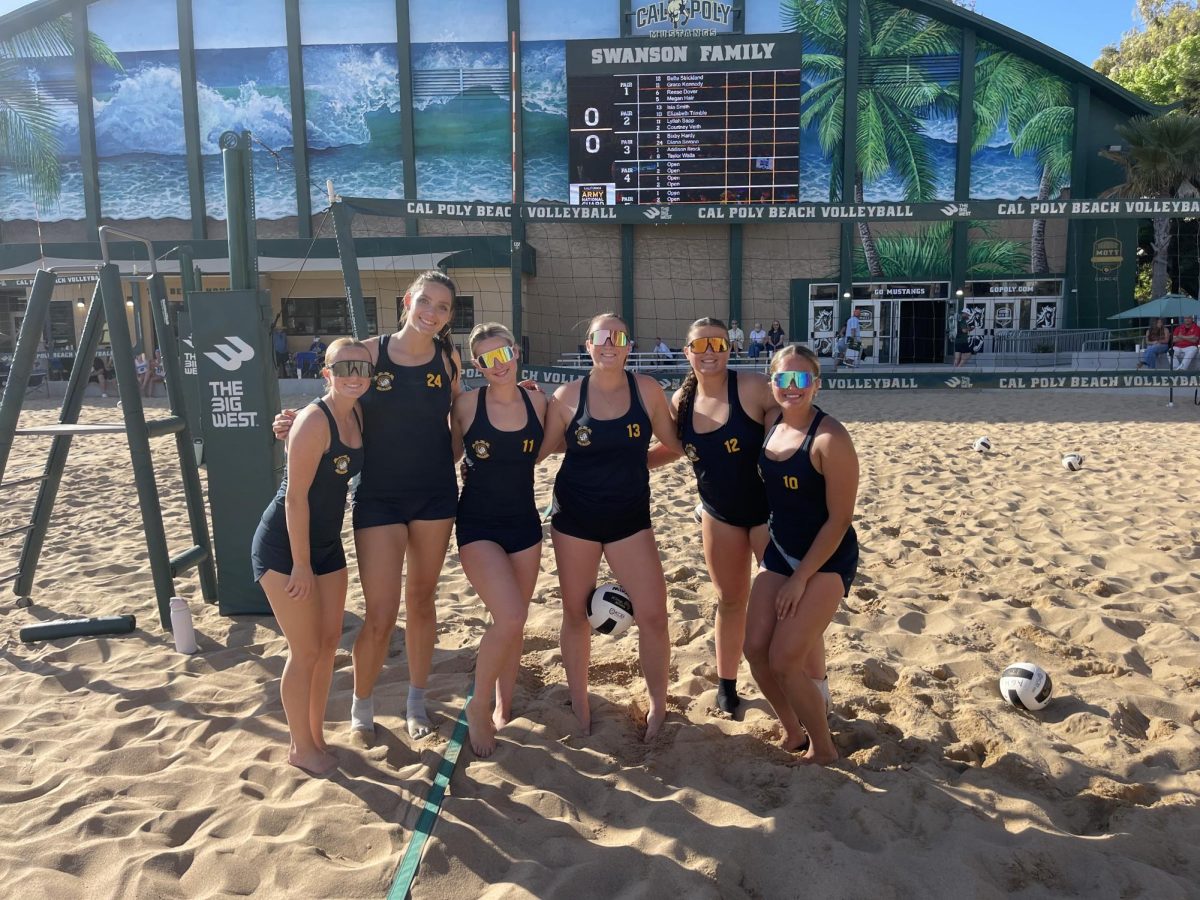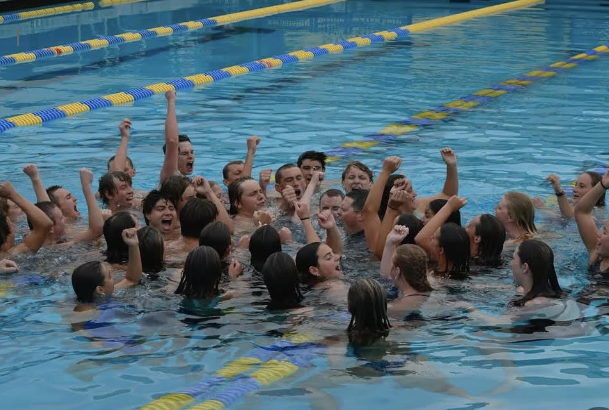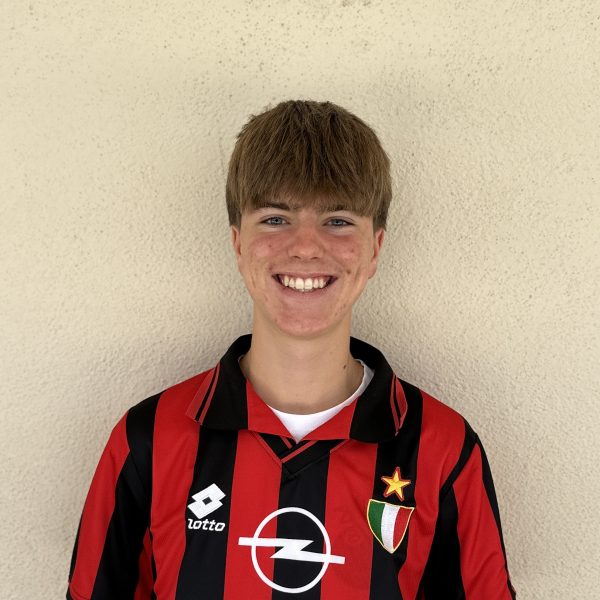A whistle blows in the direction of the stands. The game is paused as the referee walks to the home team’s bench. The referee sharply looks the coach in the eye, asking him to calm the team’s parents down. Boos grow louder with each disputed call.
Whistles are blowing on youth fields and courts less and less each year. This prevalent issue on the Central Coast is only growing as fewer referees are available each season.
This problem is not only local. The National Leader and Advocate for High-school Athletics (NFHS) survey of state high school athletic associations reported that about 50,000 referees stopped officiating since the 2018-19 season, the last season before COVID-19. This statistic suggests that the recent shortage is correlated with the impact of the pandemic. However, this problem lies deeper.
“We’ve had a little bit of a rebound [with more referees available] recently, but there’s been a big drop-off,” Gary McNeal said.
McNeal has refereed soccer at the AYSO and high school level for seventeen years. He acknowledges COVID’s role in the shortage of referees but also states fans and parents influenced the decline.
“It started with COVID, people walking away, and then it’s an issue with the sideline behavior and how [spectators] interact with the referees,” McNeal said.
The NFHS reported that 50 percent of all referee respondents feared for their safety at some point in their career because of administrator, coach, player, or spectator behavior. Nearly 12 percent of all officials who responded have been physically assaulted during or after a sporting event.
“There was a high school game recently where the referee was jeered from the stands and was called out and threatened,” McNeal said. “The usual, ‘I’m gonna see you in the parking lot’ kind of stuff. Police were called on that one.”
Due to the amount of referees stepping down, those remaining have been overscheduled to compensate.
“Just last night, I worked a game, and the referee on the match had to referee a match in Lompoc, and then [the referee] had to drive all the way up to San Luis Obispo to do a second game that night. That’s really asking too much of the referees, but it’s what we’ve gotta do to cover the games,” McNeal said.
Despite most referees volunteering their time—as the pay they receive is minimal—they face harassment while on the pitch.
“Before the game, everybody seems friendly and fine and lovely,” referee Trent Udlock said. “During the game, you catch a lot of flack from players, coaches, [and] fans. There’s constantly somebody chirping away at you. I’m not a big fan of that part.”
Udlock feels conflicted about continuing refereeing because of the drama he experiences on the field.
“Honestly, I don’t know if I want to do this again next year,” Udlock said. “I probably refereed five or six varsity center games, and in four of them there were major issues—with coaches, with players, with everything.”
It’s not uncommon for fans to overreact at calls they disagree with, even at the youth level.
“I’m not saying I ref a perfect game, and I certainly make mistakes,” Udlock said. “But, some of the treatment is like it’s the World Cup, not just a high school soccer game.”
These issues remain largely unaddressed. Some say the responsibility to minimize harassment lies with the coach.
“Some of the coaches need to grow up a little bit,” Udlock said. “And some need to take a stand on their players’ behavior. If a kid is being a poison to the team, they need to be willing to bench them.”
The issue of poor behavior isn’t new, but it is getting worse. According to the (NFHS), 68% of referees nationwide report that sportsmanship declined in recent years.

“I’ve coached high school sports off and on for years, and there’s definitely less attention to sportsmanship now. It’s just not being taught or enforced as much by coaches or at home. A coach has to be willing to bench their best player and take the heat for it, but a lot of them don’t.” Udlock said.
Athletes have noticed the poor sportsmanship present at school events as well.
“Sometimes it’s funny, but it’s mostly cruel when my teammates [verbally abuse referees],” Lucas Wolstenhom (’26) said.
Wolstenholm is a triathlete who has competed in swimming, water polo, and wrestling. The trend of fewer referees available each year concerns athletes such as Wolstenholm.
“Yeah, the refs leaving is a big problem, we need them to have high school athletics,” Wolstenholm said. “Without them, we don’t have games.”
Youth sports cannot function without referees. If changes aren’t made, the referee shortage will only worsen, and more games will be played without officials to call them. Leagues, schools, parents, and players must create a better atmosphere. One that respects those who make the game possible.





!["Coaching golf at AGHS is my chance to be a part of [a bigger community], and I am blessed and humbled by the opportunity and the responsibility that comes with it," Schiro said.](https://aghseagletimes.com/wp-content/uploads/2025/05/IMG_5361.jpg)


